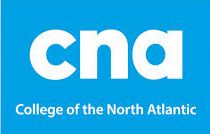Virtual Computing Science Co-op (Summer 2020)
Main contact
Timeline
-
June 27, 2020Experience start
-
June 28, 2020Project Scope Meeting
-
July 8, 20201st Mid-project check-in
-
July 15, 2020Virtual site visit
-
August 2, 20202nd Mid-point check in
-
August 16, 2020Employer evaluation due
-
August 16, 2020Experience end
Timeline
-
June 27, 2020Experience start
-
June 28, 2020Project Scope Meeting
Meeting between students and company to confirm: project scope, communication styles, and important dates.
-
July 8, 20201st Mid-project check-in
By this point, the student(s) have started on major portions of the project.
-
July 15, 2020Virtual site visit
The co-op coordinator, student and company liaison will meet virtually to discuss the student's learning outcomes.
-
August 2, 20202nd Mid-point check in
The project should be substantially completed, with a chance for final revisions.
-
August 16, 2020Employer evaluation due
The student is responsible to ask the employer to complete an evaluation form.
-
August 16, 2020Experience end
Experience scope
Categories
Skills
data analysis research software developmentVirtual Co-op Opportunity in Computing Science:
Bring on one or more students from Thompson Rivers University from the program of Bachelor of Computing Science to be your virtual interns, in a project-based experience. Students will work on one or more computing science or IT projects of your choosing over the internship period, connecting with you as needed with virtual communication tools.
Each student is available for a minimum of 150 hours of placement from Jun 1 to Aug 15. Due to COVID-19 restrictions, student placements will only occur virtually.
Some form of compensation is requested to be provided to the student. Paid experience via stipend, honorarium or hourly pay are being sought. Contact Co-op Coordinator Nancy Bepple for information on funding information.
Learners
Deliverables will vary depending on the scope of the project, and might include: documentation, product roadmaps, source code, code change suggestions, prototypes, a fully-functioning website, a fully-functioning application, and final presentation of findings. The student should complete 150 hours with your organization by Aug 15, 2020.
Project timeline
-
June 27, 2020Experience start
-
June 28, 2020Project Scope Meeting
-
July 8, 20201st Mid-project check-in
-
July 15, 2020Virtual site visit
-
August 2, 20202nd Mid-point check in
-
August 16, 2020Employer evaluation due
-
August 16, 2020Experience end
Timeline
-
June 27, 2020Experience start
-
June 28, 2020Project Scope Meeting
Meeting between students and company to confirm: project scope, communication styles, and important dates.
-
July 8, 20201st Mid-project check-in
By this point, the student(s) have started on major portions of the project.
-
July 15, 2020Virtual site visit
The co-op coordinator, student and company liaison will meet virtually to discuss the student's learning outcomes.
-
August 2, 20202nd Mid-point check in
The project should be substantially completed, with a chance for final revisions.
-
August 16, 2020Employer evaluation due
The student is responsible to ask the employer to complete an evaluation form.
-
August 16, 2020Experience end
Project examples
Students can complete a substantial technology project for your organization over the placement period. We suggest providing a starting project, but as the placement goes on there may be other duties or projects the student is asked to complete as well. Providing a central project creates structure for the internship, and gives the student (and company) a tangible goal.
Students in TRU's computing science program can complete projects in a number of technology areas.
Suggested project examples may include, but are not limited to:
- Website Development - Conduct a needs analysis to determine which platform is most suitable; create a design proposal including mock-ups, budget, and timeline; build a fully-functioning website.
- Application Development - Select the best technologies for creating the application or feature (i.e. a real-time chat function); create a fully-functioning application.
- Software Architecture Development - Architect the software of a new product; improve the architecture of an existing system; port an architecture of one system into another.
- Software Evaluation (e.g. new CRM) - Conduct a needs analysis; research available options; evaluate the options within the context of your organization's budget, immediate needs, and projected needs.
- Application Programming Interfaces - Redesign an existing API to simplify it; change API technologies; designing a new API; create or update public-facing documentation.
- Machine Learning Software Solution - Create a recommendation engine; spot trends in existing data; spot anomalies in data sets.
- Open Source Software Management - Contribute to open source projects through bug fixing or feature implementation.
- Database Analysis - Decrease query execution time; change ORM code in hotspots to more efficient SQL.
- Software testing - manual or automated testing.
Additional company criteria
Companies must answer the following questions to submit a match request to this experience:
-
Q1 - Checkbox
-
Q2 - Checkbox
-
Q3 - Checkbox
-
Q4 - Checkbox
-
Q5 - Checkbox
-
Q6 - Checkbox
Main contact
Timeline
-
June 27, 2020Experience start
-
June 28, 2020Project Scope Meeting
-
July 8, 20201st Mid-project check-in
-
July 15, 2020Virtual site visit
-
August 2, 20202nd Mid-point check in
-
August 16, 2020Employer evaluation due
-
August 16, 2020Experience end
Timeline
-
June 27, 2020Experience start
-
June 28, 2020Project Scope Meeting
Meeting between students and company to confirm: project scope, communication styles, and important dates.
-
July 8, 20201st Mid-project check-in
By this point, the student(s) have started on major portions of the project.
-
July 15, 2020Virtual site visit
The co-op coordinator, student and company liaison will meet virtually to discuss the student's learning outcomes.
-
August 2, 20202nd Mid-point check in
The project should be substantially completed, with a chance for final revisions.
-
August 16, 2020Employer evaluation due
The student is responsible to ask the employer to complete an evaluation form.
-
August 16, 2020Experience end
